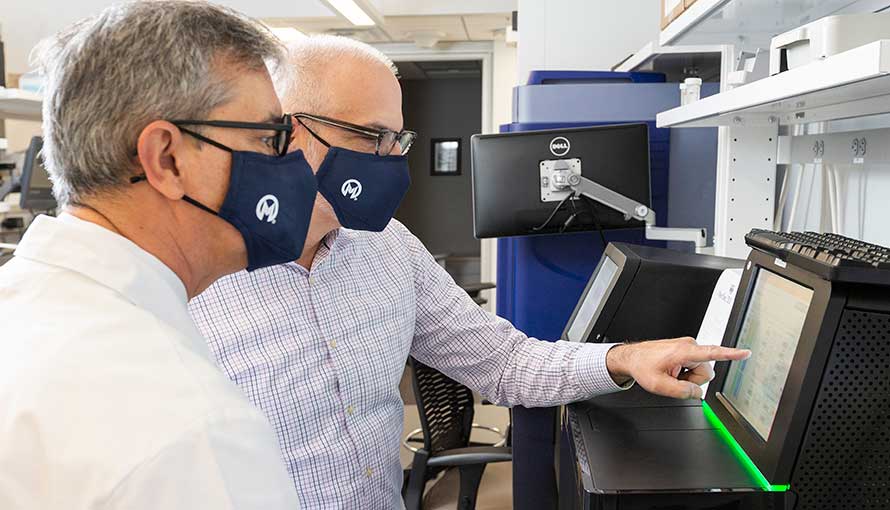Cancer Epidemiology Department Research Areas

Cancer epidemiology research is by nature multidisciplinary and spans a wide range of expertise, from bench to bedside to population studies. Faculty conduct rigorous studies to answer essential scientific questions that address multiple cancers.
Research interests of faculty in Cancer Epidemiology include:
- Quantitative imaging for early detection of lung cancer and patient outcomes
- Environmental and genetic risk factors of melanoma and familial melanoma
- Epidemiologic, molecular biomarker, and radiologic approaches to impact pancreatic cancer and its precursor lesions
- Clonal hematopoiesis of indeterminant potential (CHIP)
- Constitutional and modifiable risk factors for brain tumors
- Genetic and epigenetic biomarkers associated with risk and progression of prostate cancer
- Integrative molecular epidemiology approaches to dissect the function of cancer susceptibility loci identified by GWAS
- Imaging and early detection of breast cancer
- Life-course approaches to evaluate epidemiologic exposures affecting ovarian cancer development and progression
- HPV natural history and clinical trials to prevent HPV-related cancers
- Role of HIV in cancer development and outcomes
- Chemoprevention of prostate and lung cancer
Cancer Epidemiology
